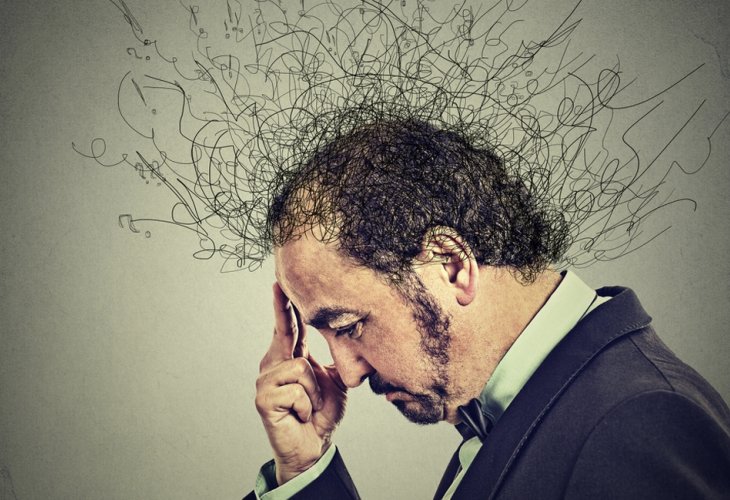Depression and Anxiety
Understanding OCD: Symptoms, Causes, and Effective Treatment Options
A Clear Guide to Obsessive-Compulsive Disorder, How It Manifests, and the Therapeutic Paths That Lead to Healing and Stability
 (Photo: Shutterstock)
(Photo: Shutterstock)As part of my work, I am frequently approached by individuals who come from very different backgrounds. Over time, I’ve encountered a recurring phenomenon known as OCD (Obsessive-Compulsive Disorder), which I would like to bring to the attention of readers.
What is OCD?
OCD, or Obsessive-Compulsive Disorder, is a mental health condition characterized by recurring, intrusive thoughts (obsessions) and repetitive behaviors or mental acts (compulsions) performed to ease the distress caused by those thoughts. While not classified as a severe mental illness, OCD can be deeply distressing, involving compulsive behaviors or thoughts with extreme attention to detail. To an outside observer, someone with OCD may appear overly perfectionistic, but in reality, they often suffer from intense inner anxiety, mental distress, and emotional turmoil when they cannot perform their rituals or resolve their thoughts.
OCD affects approximately 1–2% of the population. Symptoms typically first appear between ages 9 and 13, particularly in boys, and it often has a hereditary component. According to research (as cited in CBT Institute and Wikipedia), women tend to suffer more from obsessive thoughts, while men more often exhibit compulsive behaviors or rituals.
Examples include people who excessively clean due to fear of germs, those who repeatedly check whether they locked a door, or individuals who are fixated on minor flaws in their appearance. In religious individuals, OCD can manifest through excessive ritual strictness or endless doubts in matters of faith.
OCD is considered a disorder only when it causes significant anxiety or disruption to a person's daily functioning.
How Does OCD Appear in Questions?
Some individuals with OCD initially appear to be asking genuine, curious questions, however, like an unhealing wound, they quickly return to the same questions, rephrased in different ways. They tend to doubt not only the answers they receive, but also their own ability to understand those answers. They may worry if they asked their question improperly, weren't understood, or didn’t comprehend the response. They struggle with making even simple decisions, and a small doubt can lead to total destabilization. For someone with OCD, a small fly becomes an elephant.
It’s essential to understand that this isn’t perfectionism, but a disconnect from reality. People with OCD aren’t striving for perfection- they are desperately seeking solid ground they cannot seem to find. The answers they receive may calm them for an hour or a day, but the root issue remains unresolved. The disorder generates a never-ending cycle of repetitive questions and doubts.
What Causes OCD and How Is It Treated?
While the exact cause is unknown, OCD appears to have a genetic basis. Many researchers believe it results from a neurological imbalance, especially involving serotonin, leading to instability in thought processing. Treatment generally includes medication that inhibits serotonin reuptake, as well as cognitive-behavioral therapy (CBT), which teaches individuals to resist the behaviors and mental habits that fuel their compulsions. The initial step in treating OCD is breaking harmful patterns.
There is discussion of OCD within halachic (Jewish legal) sources. A question was once posed to Rabbi Yaakov Yisrael Kanievsky (the Steipler Gaon) regarding a young man who compulsively repeated the Shema prayer for fear he had mispronounced a word. The Steipler instructed him to recite it only once, without repetition, even if he felt he had made a mistake- and did not provide any further explanation, so as not to trigger further doubts.
In my understanding, the first step in treating someone with OCD is to calm them and help temporarily distance them from their compulsive behavior. In more severe cases, however, breaking habits alone won’t suffice and obsessive thoughts can return independently. In such cases, psychological treatment is clearly necessary.
To date, I have successfully referred four young men with OCD to clinical psychologists. Over time, I’ve learned that clinical psychologists (rather than general counselors) are better equipped to diagnose and provide appropriate medication. I’ve personally known two individuals with OCD who saw dramatic improvement after receiving mild medication. They described the change as "waking up from a long, blurry dream", finally experiencing emotional stability and confidence.
The Torah commands: "Take great care of your souls" (Deuteronomy 4:15). G-d expects every individual to care for their physical and emotional health, and not to delay treatment. If the obsessive individual is seeking truth, the first step must be healing the soul so that clarity can emerge. Just as poor vision distorts physical reality, emotional instability distorts one’s grasp of truth.
May we all find healing and success!

